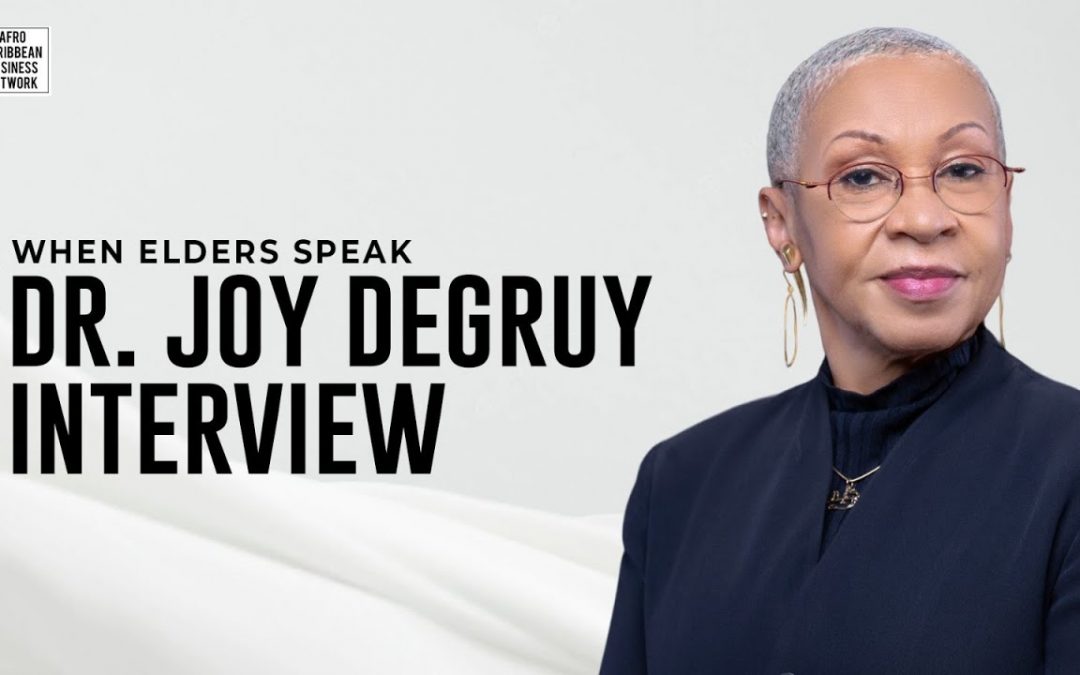As business owners, we’re constantly searching for the secret sauce—the strategy, the technology, the market edge—that guarantees success. We chase profits, optimize processes, and worship the metrics that drive the bottom line. But what if the deepest insights for long-term health and growth don’t come from a textbook on corporate strategy, but from a profound understanding of community, relationship, and human nobility?
I recently encountered the work of Dr. Joy DeGruy, author and dedicated healer, and her perspective on eldership and community—a concept deeply rooted in the principle “I am because we are”—offers a radical reorientation for how we should lead our teams and engage our customers.
Here are the critical lessons I’m integrating into my business right now, and why you should too:
——————————————————————————–
1. Relationships Are Your Highest Value Asset
The Western world often encourages “ego worship” and materialism, prioritizing “stuff” and titles over genuine connection. But an 85-year Harvard study found the cause of happiness is good relationships. This aligns perfectly with the primary value system (axiology) of African descent, where the highest value lies in the relationship between people.
What This Means for Leadership:
We must stop treating our staff, partners, and clients as transactional resources. If your team is only focused on degrees, trophies, or the size of their next bonus, they will never find real happiness, and your company culture will remain brittle.
• Focus on the Core: At the end of the day, success is defined by “who you love and who loves you.” We need to do the foundational work of building strong internal relationships.
• Dethrone the Ego: Leadership isn’t about having the final word or holding onto the mic forever. As Dr. DeGruy notes, true eldership involves humility—knowing when to step back from the leadership spotlight and serve the community (even if that means offering to “wash the dishes” or “fold up the chairs”). This models “us and not me.”
2. The Presence of the Elder Brings Order
Dr. DeGruy shared a fascinating story about young bull elephants acting destructively until the mere presence of a powerful, experienced bull restored “order and appropriate balance” to the group. The young elephants needed the elder to know their place.
This is a biological necessity that translates directly to the workplace:
• Value Wisdom and History: Our long-term employees and experienced leaders are the “bull elephants.” They have wisdom gained from long experience, having “seen some things” and made plenty of mistakes.
• Listen Intentionally: Emerging leaders must give the honor of their conversation to Elders. If we don’t listen, we risk repeating known failures, just like leaders who believe they “got this” only to realize a year later they didn’t.
• Be a Stabilizing Force: Your presence as an experienced leader or owner should bring a sense of order to the space. When things feel chaotic or “out of order,” the intentional leadership of an experienced person is what restores balance.
3. Acknowledgment Cultivates Intrinsic Nobility
Eldership is fundamentally about making people feel seen, special, worthy, and capable. Dr. DeGruy described the casual nod exchanged between strangers as a powerful act of recognition: “I see you.”
What This Means for Your Employees:
• The “Juicy Face” Principle: When an employee walks into the room, do you “light up” for them? Your intentional smile and encouragement are essential to affirming their self-worth.
• Combat Alienation: Dr. DeGruy shared an anecdote where Elders crossed the street to avoid rambunctious young men, sending a harmful message of alienation. In business, we harm our employees and future talent when we avoid engagement or fail to acknowledge their potential.
• Bring Them Back to Their Best Selves: A leader’s role is to bring people “back to your intrinsic nobility” when they have forgotten it. Instead of moving away from difficult or inappropriate behaviour, we must lean in and gently remind individuals of the high standards and capabilities we expect from them.
4. Rites of Passage Must Define Contribution, Not Just Independence
Rites of Passage (ROP) is often misunderstood as simply gaining independence. Its true significance, however, is helping young people recognize their contribution to the wholeness of the village. The goal is to “excavate a person’s abilities” so they understand what they can bring to their people.
• Prevent Destructive Behaviour: Dr. DeGruy cites the proverb: “If a child is not embraced by his village, he will burn it down to feel its warmth.” If your business doesn’t give young staff a clear, meaningful role, they will seek that warmth and validation elsewhere—potentially causing friction or leaving entirely.
• Hone Individual Gifts for the Collective: Think of your business as an orchestra. While the collective sound is beautiful, sometimes the string section has to meet alone to hone its skill before contributing. Our training and mentorship programs should be designed to focus and excavate each person’s unique gifts, preparing them for their role in the company’s “collective sound.”
5. Courage and Vulnerability Build Trust
Dr. DeGruy’s biggest lesson learned is courage. Courage isn’t the absence of fear, but doing what you have to do even when you are afraid. Courage requires vulnerability—trusting that when you fall, someone will catch you and help you get back up.
• Make Failure an Opportunity: We must create a culture where staff feel safe to admit, “I’m not okay” or “I was wrong and I own it.” If employees are punished for not being perfect or for demonstrating humanity, they will never innovate or take necessary risks. Failure is simply an opportunity to learn.
• The Power of Connection: Dr. DeGruy demonstrated courage by stopping a group of rambunctious young men and asking them about their life dreams, forging a relationship. By creating that relationship, she guaranteed they would protect her because she had validated them. In business, forming genuine relationships protects the organization far better than rigid rules.
Dr. Joy DeGruy reminds us that our most vital call to action today is to address the assault on truth. This means embracing ourselves, honoring those who came before us, and standing in that truth despite global struggles with anti-Blackness.
For us, the truth is that the human element—the relationship, the inherent worth, the courage to be vulnerable—is what builds an enduring, meaningful enterprise. If we focus on building up and healing relationships within our teams and communities, we will find the peace, and success, we all need.




